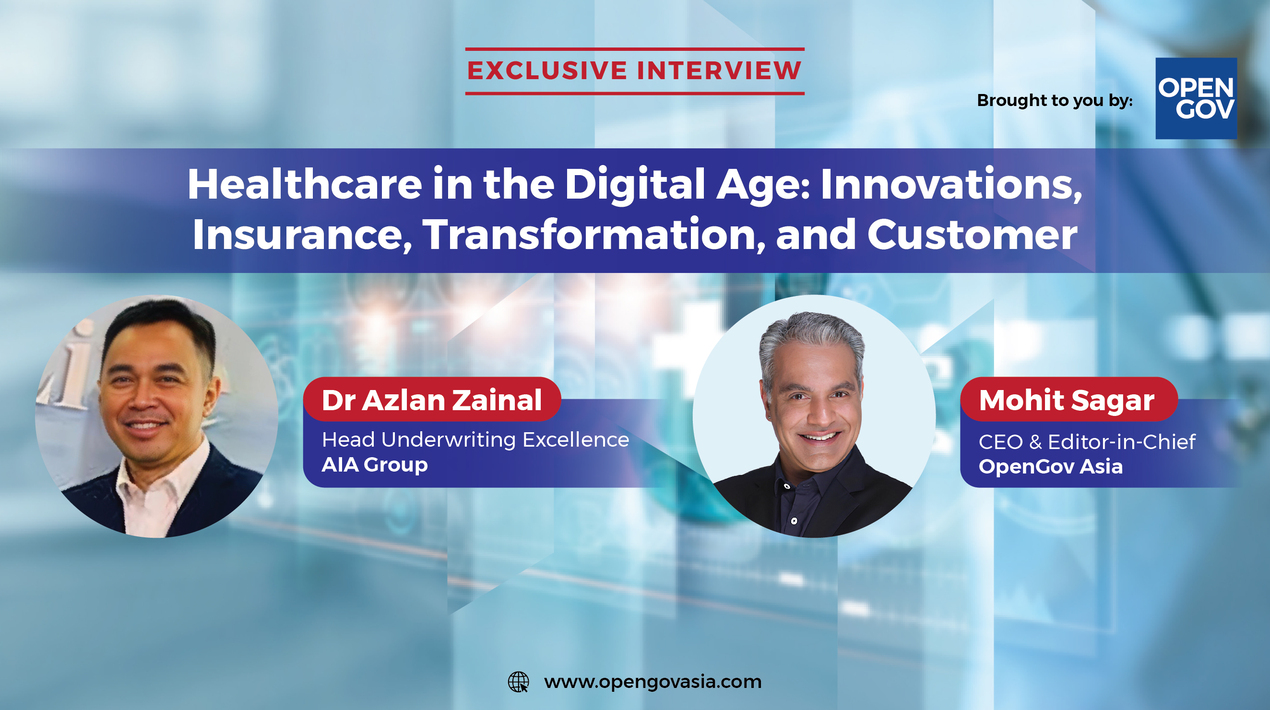
|
Getting your Trinity Audio player ready...
|
Having a background in driving the trajectory of healthcare, pivotal components encompass pioneering approaches, insurance integration, the digital revolution and augmenting the customer journey.
Innovations in healthcare play a vital role in driving advancements in medical technology, therapies, and delivery systems, leading to improved patient outcomes and more effective management of illnesses. They target new threats such as pandemics by developing quick diagnostics, vaccinations, and crisis response capabilities.
On the other hand, healthcare insurance serves as a crucial tool in providing financial security and ensuring access to healthcare services, making them affordable and accessible to individuals from all walks of life.
Digital business transformation revolutionises the healthcare industry by harnessing the power of technology and data to enhance operational efficiency, streamline processes and elevate the overall patient experience.
It facilitates the use of electronic health records, telemedicine, remote monitoring and health informatics, all of which improve efficiency, accuracy and provider collaboration. In essence, by embracing data-driven decision-making, optimising workflows and delivering personalised care, healthcare providers can achieve better outcomes and enhance patient satisfaction.
Customer experience is vital in healthcare because it affects patient outcomes and satisfaction. Providers improve communication, accessibility and openness through customer-centric methods, encouraging patient engagement and empowerment. Positive interactions increase patient engagement, treatment adherence, and trust, which ultimately improves health outcomes.
The pillars of healthcare innovation, healthcare insurance, digital business transformation and customer experience are interconnected and essential for the growth and success of the sector. They play a vital role in improving patient care, increasing healthcare accessibility, optimising healthcare processes, and delivering tailored experiences that meet the needs and expectations of patients and healthcare consumers.
Driving Change in Healthcare
 Azlan Zainal, Head Underwriting Excellence, AIA Group acknowledges some of the potential barriers and challenges that organisations may face when implementing healthcare innovation on a large scale.
Azlan Zainal, Head Underwriting Excellence, AIA Group acknowledges some of the potential barriers and challenges that organisations may face when implementing healthcare innovation on a large scale.
“While the list of barriers is exhaustive, I would single out the rising cost of healthcare as the biggest challenge as insurers try to balance the value of their products to the expectation of customers today,” Azlan emphasises. “Advancing medical technology and balancing medical premiums to rising medical claims means that there is very little room for innovation at least from a traditional insurance viewpoint.”
Azlan believes that healthcare innovation improves healthcare quality and access, especially in neglected areas or developing nations. Highlighting the success of established models in various industries, he has observed the utilisation of mobile platforms to deliver outpatient care services and the integration of different stakeholders in the health and wellness sector, including the facilitation of access to nutritious produce.
“Even our very own vaccination app My Sejahtera has shown strong success during crisis management time but has an even greater potential as a real-time health record of the country’s population,” Azlan reveals.
With the advancement of digital technology, an ecosystem enables not only access to healthcare for those in need but also the ability to meet their needs and influence outcomes through data enrichment.
If the goal of innovation is to improve healthcare outcomes for the public, then greater insurance penetration will result in more affordable healthcare for its intended consumers. It could be said that policyholders and insurers share an interest in developing together.
Insurance providers consistently adapt their offerings to align with emerging healthcare advancements. This process involves finding a delicate equilibrium between the services consumers are willing to pay for and the expanding range of options available. Regulators actively collaborate with insurers and other stakeholders in the healthcare sector to foster the development of products that cater to the evolving needs of a dynamic environment.
Not only must there be a partnership for insurers to promote innovative solutions, but also for innovation providers to demonstrate enhanced results. The path to success will not be easy, and partnerships will need to be strategic in their economic models and health offerings to be successful. Invariably, the consumer decides. The key is to comprehend the varying requirements of modern consumers.
“We have learnt that just bundling a device doesn’t translate to changes in health behaviour; what we want is the utilisation of these technologies or in short data learning,” says Azlan. “For consumers to share data, they must trust in data security and should be rewarded for participating in such sharing.”
The ultimate determinant lies in how customers perceive the value of these partnerships, underscoring the importance of insurers and partners consistently engaging with, attentively listening to, and proactively catering to their customers’ needs.
As Azlan highlights, both internal and external processes are undergoing digitalisation. Internally, the focus is on continuously enhancing productivity and leveraging cost savings that can be passed on to customers. Externally, digitalisation aims to create a seamless healthcare experience for users by bringing together an optimal combination of healthcare stakeholders.
Continuous value creation is the focus of one while continuous improvement is the subject of the other. Cost containment for insurers is managed by cost-effectiveness and leakages to fraud, waste, and abuse. Innovation and commercial prospects will be on the other end of the spectrum.
By fostering self-empowerment, digital business transformation significantly enhances the overall patient experience in healthcare. Similar to other digital offerings, a wide range of resources and services are made accessible to customers, enabling them to take full advantage of these offerings. The objective is to actively involve customers in leveraging technology to its fullest potential, encouraging behavioural changes that promote better health management and well-being.
“Diverse players in the healthcare system have quite diverse motivations,” Azlan opines. “Insurers want to keep rates low, while healthcare providers want to see all forms of therapy covered.”
For Azlan, the key is finding the ideal balance and a situation where each party’s growth is sustainable. One of the challenges in implementing digitalisation in tandem is to match these goals such that everyone benefits, including customers.
The area of data, according to Azlan, is where healthcare firms can use digital transformation to personalise and tailor services to specific client demands. In a perfect ecosystem, the consumer is aware of their wants and has access to them right away.
By anticipating demands based on personal usage or cohorts with similar behavioural habits, data adds another element to the mix. Both governing and facilitating the use of data are roles that the government must play.
“Digital transformation continues to make healthcare accessible and in a sustainable way. What we as stakeholders need to do is to continuously show our value in that new relationship that our customers engage in,” Azlan believes.
He defines innovation as any advancement that people may use and benefit from. It isn’t exclusively about technology change but technology that changes behaviour. The right to quality medical care belongs to everyone!
“My goal is to ensure that insurance is comprehensible to all individuals, financially accessible to everyone, and characterised by transparent practices. This commitment stems from my personal background as a consumer in the insurance industry, as well as my current work in the field,” Azlan shares.
Azlan, being the catalyst behind Malaysia’s pioneering digital health insurance programme, was entrusted with the responsibility of developing this innovative solution alongside a dedicated team of individuals who shared the belief that it was not only possible but also crucial to accomplish.
Azlan envisions a national insurance programme for the country, recognising its significance in protecting citizens from financial risks, fostering social cohesion, enhancing public health and contributing to economic stability. He firmly believes that the establishment of such a scheme is vital for the overall well-being and security of the nation’s residents.
“It guarantees that individuals and families have access to necessary resources and assistance, resulting in a more equitable and resilient society,” he concludes.
















